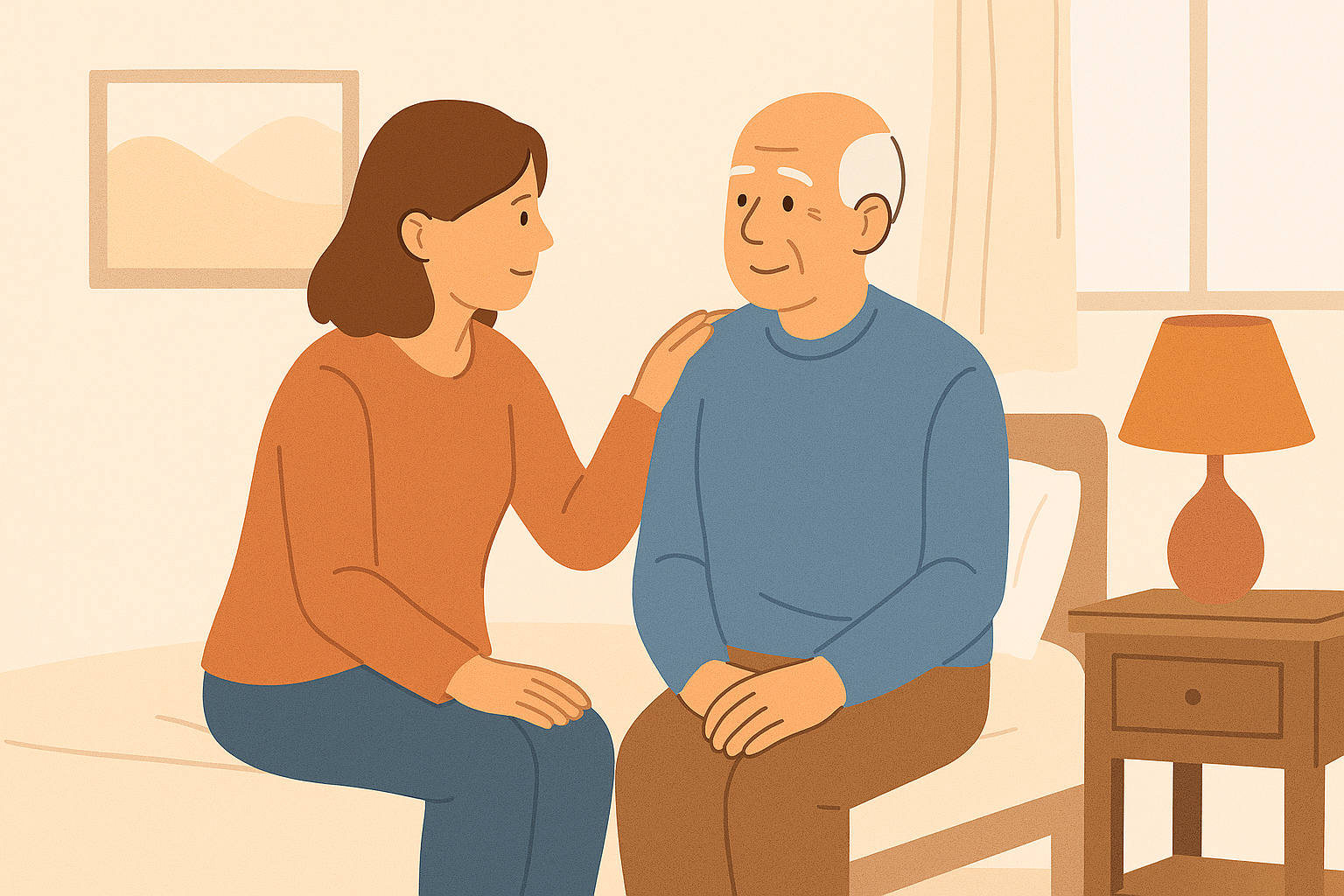At What Age Do Most Seniors Need Care? The Signs To Recognize
There's no single number that flips a switch from independence to needing help. While many people think "80 is the new 70," the truth is that aging doesn't follow a script. For some families, the signs show up in their late 60s. For others, it isn't until well into their 80s that support becomes essential. So if you're wondering when most seniors need care, you're not alone, and the answer is more layered than you might think.
Table of Contents
- How Age Influences Care Needs (But Doesn't Define Them)
- What the Data Says: When Most Seniors Start Needing Help
- More Than Age: 10 Signs It Might Be Time for In-Home Care or Assisted Living
- The Atlanta Difference: What Care Looks Like in Our City
- Home Care vs. Assisted Living: What's Right (and When)?
- When It's Time for Backup: Respite Care & Support for Family Caregivers
- Families Also Ask (FAQ)
How Age Influences Care Needs (But Doesn't Define Them)
Age is a guide, not a rulebook. It's true that the likelihood of needing help with daily activities increases over time, but care needs vary wildly depending on health, lifestyle, genetics, and support systems. A 70-year-old with mobility challenges may need more help than an 88-year-old who's still sharp, social, and independent. The key is paying attention to function, not just the number.
What the Data Says: When Most Seniors Start Needing Help
According to the U.S. Department of Health and Human Services, about 70% of people turning 65 today will need some form of long-term care services during their remaining years. Here's how it tends to break down:
| Age Range | Percentage Needing Help | Common Support Types |
|---|---|---|
| 65-74 | 19% | Light support (medication reminders, transportation) |
| 75-84 | 45% | Help with bathing, dressing, meal prep |
| 85+ | 69% | Comprehensive care, possible memory support |
But again, age is only part of the story. Your mom might be sharp as a tack at 90, while your dad started needing help at 72. Let's look at the bigger picture.
More Than Age: 10 Signs It Might Be Time for In-Home Care or Assisted Living
Here are common signs that care may be needed, regardless of age:
- Trouble with daily activities (bathing, grooming, getting dressed)
- Medication mismanagement or forgetting doses
- Unexplained bruises or falls
- Loneliness or social withdrawal
- Unopened mail or missed bills
- Spoiled food in the fridge or skipping meals
- Declining hygiene or unlaundered clothes
- Getting lost on familiar routes or forgetting appointments
- Caregiver burnout in the family
- Doctor's recommendation for support
If these ring true for someone you love, it might be time to start looking into support options, even if they're under 80.

The Atlanta Difference: What Care Looks Like in Our City
In metro Atlanta, families often try to keep loved ones at home for as long as possible. And we get it. There's something sacred about being able to age in place, especially when your grandkids are nearby. That's why at 4 Seasons Home Care, we meet families where they are, whether that's providing part-time help, 24/7 care, or just giving the main family caregiver a weekend off.
And let's be real: traffic and Southern humidity don't make things any easier. That's why in-home care is often the first step, long before any move to assisted living is on the table.
Home Care vs. Assisted Living: What's Right (and When)?
The difference between home care and assisted living is less about age and more about the level of care needed and personal preference.
| Home Care | Assisted Living |
|---|---|
| Remain in your own home | Move into a senior living community |
| Flexible hours (from 4 hours a day to 24/7) | Set schedule and shared staff |
| Personalized one-on-one care | More cost-effective for high care needs |
| Great for seniors who value familiarity | Social environment with peer interaction |
Most families don't go from independent living straight into assisted living. Home care often bridges that gap, helping delay or even avoid a move altogether.
When It's Time for Backup: Respite Care & Support for Family Caregivers
If you're feeling overwhelmed, you're not alone. Many caregivers report feeling guilty for even considering help. But here's the truth: you can't pour from an empty cup. That's where respite care comes in.
Respite care allows a professional caregiver to step in temporarily so you can rest, travel, or simply breathe. It's available for just a few hours or even a few days. And sometimes that break is exactly what helps you keep going long term.
Whether you need weekend help, backup during a medical recovery, or regular weekly support, 4 Seasons Home Care can help fill in the gaps. No pressure. No long-term commitments. Just support that fits your life.
Families Also Ask
What age do most seniors need assisted living?
Most seniors who enter assisted living do so between ages 75 and 85, often after a health event or ongoing challenges with daily activities. However, some begin as early as their late 60s if safety or isolation become concerns.
Do people live longer at home or in assisted living?
Longevity depends more on quality of care than location. With proper support, seniors can thrive both at home and in assisted living. The key is timely intervention and consistent care.
How many falls is too many before moving to assisted living?
Even one serious fall can be a red flag. Multiple falls, especially with injuries, suggest it may be time to consider additional support—either at home or in a community setting.
How long does it take for a person to adjust to care?
Most seniors adjust to in-home care within 1-2 weeks. Assisted living can take longer—sometimes a few months—depending on the personality and prior independence of your loved one.
What if my parent refuses help?
Resistance is common. Try having smaller, more frequent conversations. Emphasize safety, independence, and your desire to see them thrive. Sometimes, starting with light home care helps ease them into accepting help over time.
Need Help Navigating Next Steps?
Whether you're starting to notice changes or feel like you're already underwater, 4 Seasons Home Care is here to support you. We serve families all across metro Atlanta with flexible, compassionate in-home care that meets your loved one's needs, and your peace of mind. Reach out to us today and let's talk through it together.
